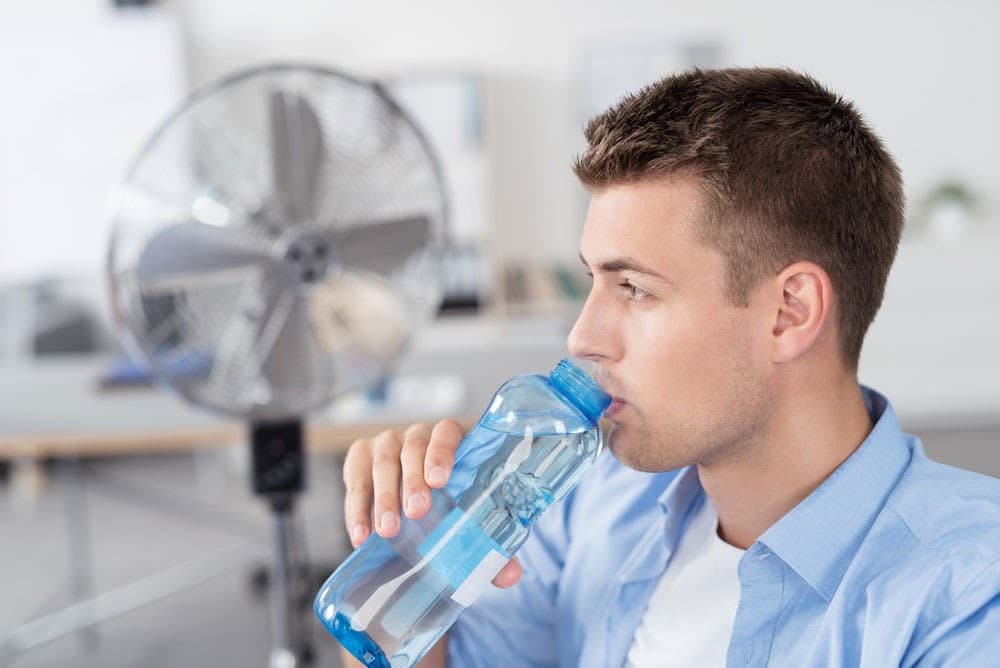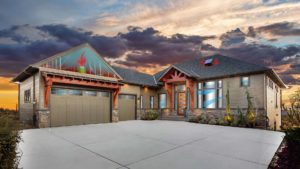Most people aren’t air conditioning experts; luckily, we’re here to help! Unfortunately, ever since the first air conditioner was invented, people have held onto a lot of misconceptions about how they work and the best way to use them. A lot of these misconceptions boil down to common sense being misapplied because sometimes what’s best for your HVAC system is a little counterintuitive. However, if you live in Phoenix, you should be aware of these misconceptions.
5 Biggest Air Conditioning Misconceptions
While we could write a whole book about every myth, misconception, and old wives’ tale that we’ve heard about the most efficient way to run your HVAC system during summer in Phoenix, these five are far and away the most common ones.

Myth 1: Closing the vents in a room when you’re not in it will improve AC Unit efficiency.
The Truth: Unless your home is divided into separate HVAC zones that you can control independently of one another – in which case, you probably live in a mansion – your home’s HVAC system is meant to distribute air across your entire house. The airflow, temperature, and pressure inside your ductwork is kept more or less constant by the compressor, fan and condenser units; the vents let the cold air in your ducts flow into the rooms of your house.
When you close a vent, you increase the pressure inside your ductwork, which might slightly increase the flow of air into other rooms, but your HVAC system will still be working exactly as hard as it was before, and most of the work that it does will just keep your ductwork at a cold temperature. In the best-case scenario, you’ll get nothing out of it and wear out your HVAC system faster than it should. Worst-case scenario, you could cause your condenser to freeze, which can lead to the compressor short-cycling, which wastes a lot of electricity and reduces the system’s efficiency.
The Solution: Keep all room vents open.
See Also: Should I put dryer sheets on my A/C air intake vent?

Myth 2: It’s best to turn your AC Units off when you leave home. Or it’s best to leave it running at a comfortable room temperature.
The Truth: This isn’t precisely a myth. Turning off your AC when you leave home will save you money compared to leaving it running as usual (keeping a house at 70 degrees in an Phoenix summer? Not cheap). However, your house will heat up spectacularly over the course of the day, which will be pretty uncomfortable to come home to and will take a while to bring back down to a comfortable temperature. It can also damage or warp wooden elements of your home like doors, can make food spoil faster in the pantry, and can injure or kill pets or plants.
The solution: Turn the A/C units to a warmer but still acceptable temperature while you’re away and turn it back to a comfortable one when you get home. The best way to do this is to replace your old thermostat with a programmable one. This way, you can pre-program it to maintain a relatively high temperature while you’re at work and bring the temperature down to where you want it a little before you usually get home.

Myth 3: Turning down the thermostat cools your house down faster.
The Truth: The assumption made here is that air conditioners work harder the further that the actual temperature inside your home is from the temperature setting on your thermostat, which is not the case. Your AC will work exactly as hard as it needs to reach its set temperature, and then it cuts out. Once the thermostat detects that the inside temperature has risen again, the AC will turn on again to bring it back down. Hvac systems work either at 100 percent or zero percent – and nowhere in between.
The solution: Turning the thermostat down will only make your AC work longer, not harder, so you should only turn the thermostat down to the temperature you want inside your home. If you think your AC unit is running slower than it usually does, it might be time for a maintenance visit and a tune-up.
![]()
Myth 4: It doesn’t matter where you install your AC unit as long as it’s outside the house.
The Truth: Where you install your AC unit is a crucial factor for efficiency. Part of the equation is sunlight. Just like you, your AC unit will be a little cooler in the shade than it would be in direct sunlight. The ground and walls around the unit absorb sunlight that heats them up, and the AC unit itself will absorb some, too. Keeping the unit out of direct sunlight will pay off pretty significantly, making it more efficient and its parts last longer.
Why’s that? Keeping the components and environment around your AC unit cooler, especially the air that feeds it means that it won’t have to work quite as hard to bring that air down to the set temperature.
The solution: Ideally, install the A/C unit on the north or east side of your home to minimize its exposure to direct sunlight. You should also be careful about planting shade trees or shrubberies around your AC unit. Using them to provide shade is a good idea, but you need to make sure that they don’t block any airflow around the A/C unit!
Myth 5: You should get the biggest air conditioner you can. It’s just a refrigerator for your house.
The Truth: You’ll end up less comfortable and spending more than you need to with an over-sized air conditioner. For one thing, an over-sized air conditioning unit takes a lot of electricity to run, and it won’t cool your home all that much faster. Your ductwork can only handle so much airflow safely before any additional input becomes functionally useless.
Also, air conditioners don’t just cool the air down; they dehumidify it. If your AC doesn’t run for long enough, the air inside your home will end up cool, but clammy and unpleasant. You should choose an AC unit that’s properly fitted for your home.
Going the other way isn’t any better: One that’s too small won’t be able to cool it down to the set temperature and will end up always running, sucking up energy and breaking down quickly.
The solution: Not sure if your AC unit fits your home? Get in touch with us, and we can figure out what kind of AC unit your home needs.
You should focus on improving your home’s air conditioning efficiency by blocking out sunlight in rooms that you aren’t using – direct sunlight streaming through windows can heat up your home pretty badly – improving your insulation and replacing any incandescent light bulbs you might have with LED bulbs that don’t produce so much heat.
Tips: Don’t Overthink It, and Don’t Overheat It!
Modern HVAC systems are pretty high-tech systems that are meant to make life convenient and comfortable for you – and a lot of these misconceptions are simply a result of homeowners overthinking when it comes to AC efficiency. The best thing you can do for your home and your HVAC system is to let it run the way it was designed.
You should also keep in mind sources of heat inside your home: ovens, toasters, incandescent light bulbs, computers, TV sets, and even the number of people inside will add heat to your home and add to your cooling needs. An excellent way to keep down your AC costs is to shut off heat-producers when you don’t need them to be running.
Contact ACE Home Services for All Phoenix Air Conditioning Needs
That being said, even with diligent and well-informed care, air conditioning units will need routine maintenance and will occasionally need to be repaired. This advice will help keep your need for repairs down to a minimum, where it should be. But when the time comes when you do need AC repair, and any time that you need AC maintenance done, we’re here to help you out and get your AC unit working the way it should. Call (602) 428-3341 or click here to schedule a service call today.
